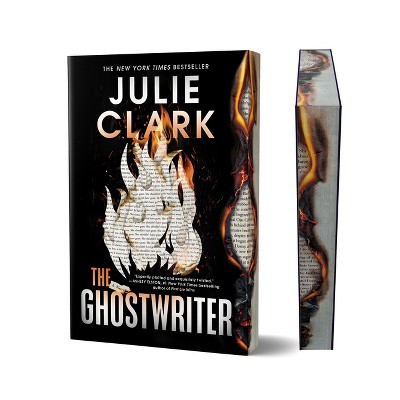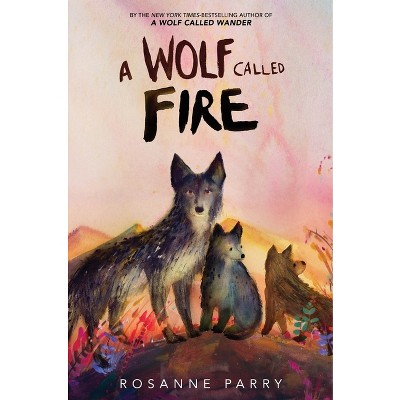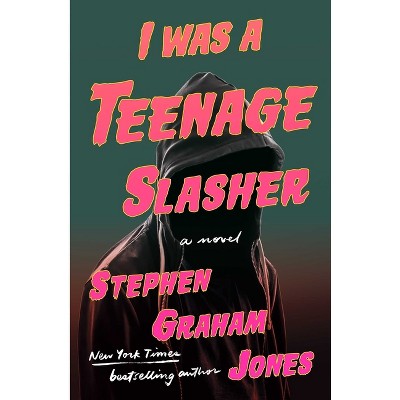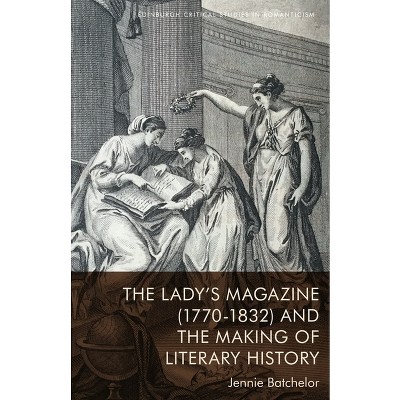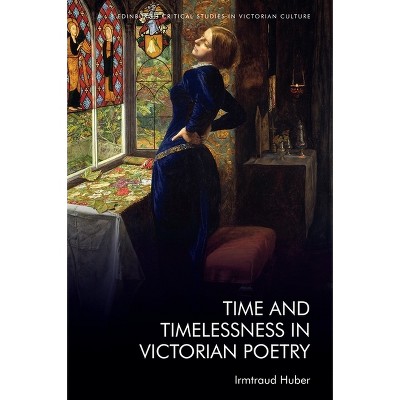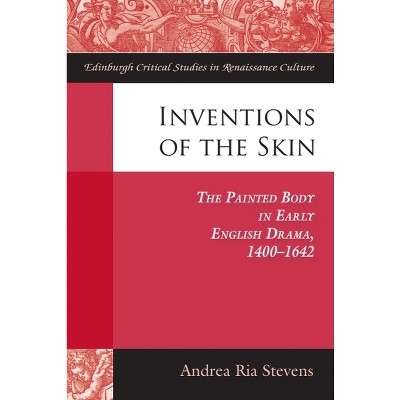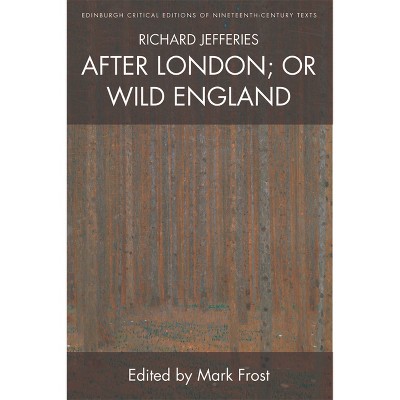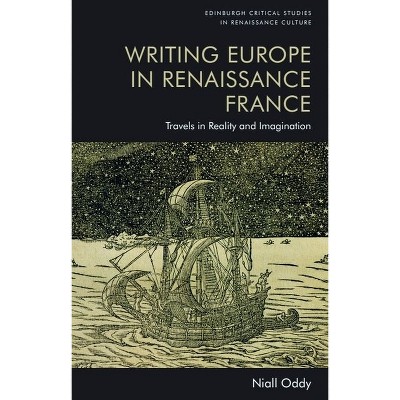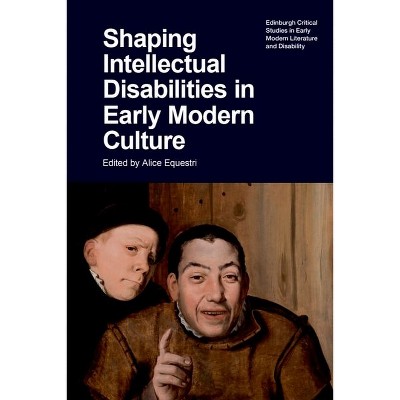Sponsored

Living in History - (Edinburgh Critical Studies in Avant-Garde Writing) by Luke Roberts
In Stock
Sponsored
About this item
Highlights
- Challenging received ideas about the British Poetry Revival, Luke Roberts presents a new account of experimental poetry and literary activism.
- About the Author: Luke Roberts is Senior Lecturer in Modern Poetry at King's College London.
- 288 Pages
- Poetry, European
- Series Name: Edinburgh Critical Studies in Avant-Garde Writing
Description
About the Book
Explores the relationship between radical poetry and radical politics from the formation of the welfare state to the advent of ThatcherismBook Synopsis
Challenging received ideas about the British Poetry Revival, Luke Roberts presents a new account of experimental poetry and literary activism. Drawing on a wide range of contexts and traditions, Living in History begins by examining the legacies of empire and exile in the work of Kamau Brathwaite, J. H. Prynne, and poets associated with the Communist Party and the African National Congress. It then focuses on the work of Linton Kwesi Johnson, Denise Riley, Anna Mendelssohn and others, in the development of liberation struggles around gender, race and sexuality across the 1970s. Tracking the ambivalence between poetic ambition and political commitment, and how one sometimes interferes with the other, Luke Roberts troubles the exclusions of 'British Poetry' as a category and tests the claims made on behalf avant-garde and experimental poetics against the historical record. Bringing together both major and neglected authorships and offering extended close readings, fresh archival research and new contextual evidence, Living in History is an ambitious and exciting intervention in the field.From the Back Cover
[headline]Explores the relationship between radical poetry and radical politics from the formation of the welfare state to the advent of Thatcherism Challenging received ideas about the British Poetry Revival, Luke Roberts presents a new account of experimental poetry and literary activism. Drawing on a wide range of contexts and traditions, Living in History begins by examining the legacies of empire and exile in the work of Kamau Brathwaite, J. H. Prynne, and poets associated with the Communist Party and the African National Congress. It then focuses on the work of Linton Kwesi Johnson, Denise Riley, Anna Mendelssohn and others, in the development of liberation struggles around gender, race and sexuality across the 1970s. Tracking the ambivalence between poetic ambition and political commitment, and how one sometimes interferes with the other, Luke Roberts troubles the exclusions of 'British Poetry' as a category and tests the claims made on behalf avant-garde and experimental poetics against the historical record. Bringing together both major and neglected authorships and offering extended close readings, fresh archival research and new contextual evidence, Living in History is an ambitious and exciting intervention in the field. [bio]Luke Roberts is Senior Lecturer in Modern Poetry at King's College London. He is the author of Barry MacSweeney and the Politics of Post-War British Poetry: Seditious Things (2017), which was shortlisted for the University English first book prize. His writing has appeared in ELH, Textual Practice, The Journal of British and Irish Innovative Poetry and elsewhere.Review Quotes
The signal achievement of Living in History is indicated by Roberts's subtitle: this is a study of Poetry in Britain, rather than British poetry, a demarcation that provides the book's guiding anti-state critique of colonial heritage, racist border policy, sexist and homophobic legislation, and carceral capitalism. It is a compelling organizational strategy that ensures Roberts's narrative flows with a freshness rarely afforded to the academic discussion of poetry. [...] Living in History is welcome not only in terms of its scholarly achievement, but in terms of its commitment to the 'inexhaustible and intractable demands' made by the poetry it cares about.--Joe Luna, University of Sussex "The Review of English Studies"
This clear and well-documented study of post-WW II British poetry also provides insights into the politics of this period. [...] This expansive discussion includes various US poets and British poets, including Kamau Brathwaite--a Barbadian poet and academic widely considered one of the major voices in the Caribbean literary canon--and feminist poets. Class, gender, and identity politics are central to his study, as are some major conflicts, such as the Balkans war, the Vietnam War, and more recent events, including the George Floyd uprisings and the protests over the war in Gaza. Social movements like Black Lives Matter are approached with parallel emphasis on literary movements, including the avant-garde. There are also many references to modernist poets such as Yeats, Eliot, Williams, and Pound. Roberts's chosen poets all participate in what he calls "social antagonism" against capital and imperialist entities.
Summing Up: Recommended.--B. Wallenstein, emeritus, CUNY City College "CHOICE"Luke Roberts's Living in History is an important addition to scholarship about British poetry after World War II. Deftly weaving together archival research, personal reflection, and fresh interpretations of poems, Roberts significantly broadens our sense of the relationship between post-war British poetry and the myriad political movements that shaped it.
--Chris Nealon, Johns Hopkins UniversityAbout the Author
Luke Roberts is Senior Lecturer in Modern Poetry at King's College London. He is the author of Barry MacSweeney and the Politics of Post-War British Poetry: Seditious Things (2017), which was nominated for the University English first book prize. His writing has appeared in ELH, Textual Practice, The Journal of British and Irish Innovative Poetry, and elsewhere. He is co-editor, with Sam Ladkin, of the work of Mark Hyatt, including So Much For Life: Selected Poems (2023), and the novel Love, Leda (2023). He also edited Barry MacSweeney, Desire Lines: Unselected Poems: 1966-2000 (2018), and was co-editor of Certain Prose of the English Intelligencer (2014). His books of poetry include Home Radio (2021), and his poems have been published in Chicago Review, Ludd Gang, Cambridge Literary Review and many other little magazines. With Amy Tobin he edits the small press Distance No Object.
Shipping details
Return details
Trending Book Pre-Orders


